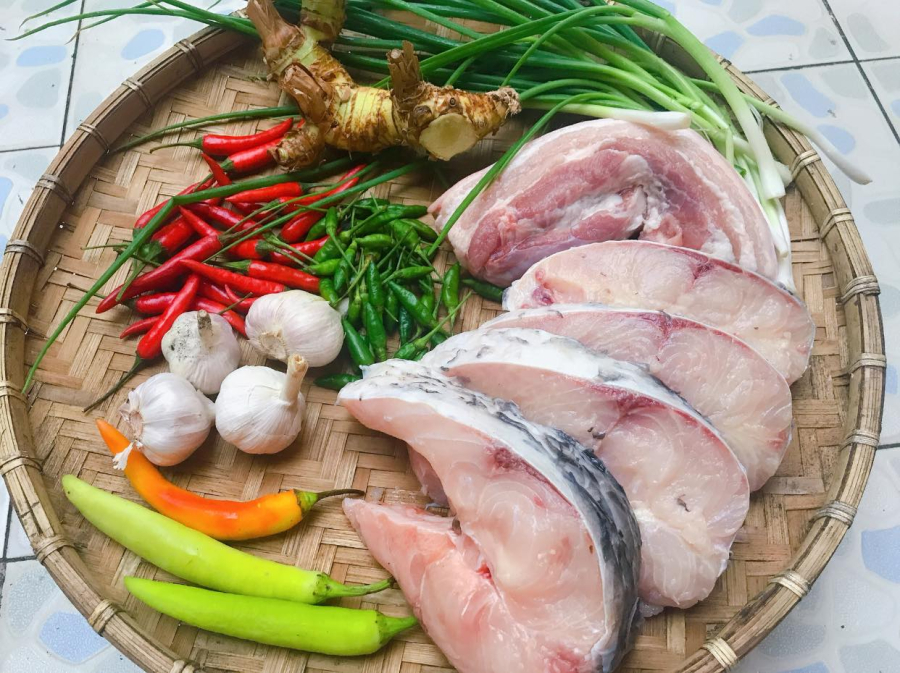Braised fish is a familiar dish in Vietnamese cuisine, but not everyone knows the secret to making a delicious, aromatic pot of braised fish without any fishy smell. If you make a mistake with any of these steps, your braised fish will no longer taste or smell appealing.
1. Selecting the Fish
Choosing the right fish is extremely important if you want to create a perfect braised fish dish. Fresh fish is the ideal ingredient to ensure a tasty meal. When buying fish, look for ones with clear and bright eyes, avoiding those with cloudy or dull eyes. It’s even better if the fish are swimming vigorously in a tank of water.

Selecting the right fish is crucial for a delicious braised fish dish.
You can also assess the freshness of the fish by looking at its gills. Fresh fish usually have red or pink gills, so avoid those with dark, blackened gills. When pressing your finger into the fish’s body, if the flesh feels very soft and slimy, the body sinks in and takes a long time to rebound or doesn’t rebound at all, and there’s an unusual odor, do not buy it. Only choose fish with a shiny exterior and good rebound when pressed.
2. Removing the Fishy Smell
While the fishy smell is characteristic of fish, it’s important to reduce it to ensure a tasty braised dish. To get rid of the fishy odor, add a little salt to the fish during preparation, soak it for a few minutes, and then clean it thoroughly to remove the slime and reduce the fishy smell.
Additionally, when gutting the fish, remove the gills and the black membrane inside the belly to further reduce the fishy odor. After rinsing the fish, use a knife to make a horizontal cut across the body, about 1 cm away from the head and body. You’ll see a white thread-like vein; carefully pull it out from both sides of the body. This will significantly reduce the fishy smell.
Especially when preparing slippery-skinned fish, pour hot water over the fish and then scrape off the slime. This ensures a clean fish without the fishy smell. Alternatively, you can soak the fish in rice water for 10 to 15 minutes to reduce the odor.
3. Marinating the Fish
For a tasty braised fish dish, avoid using too much seasoning. After cleaning and cutting the fish into pieces, place them in a large bowl and add some good fish sauce, fermented soybean paste, seasoning powder, or salt, along with finely chopped shallots. Marinate for about 2 hours.
4. Braising the Fish

Adding a small amount of pork belly makes the fish meat softer and richer, enhancing the flavor of the braised fish.
When braising, especially with carp or bighead carp, season the fish with homemade caramel sauce, coconut water, chili peppers, cooking oil, or lard. To make the fish meat softer and richer, add a small amount of pork belly to the braise, which will greatly enhance the flavor.
If you prefer double-boiled fish, let the pot rest after the initial braising. Then, just before serving, heat it up again. This will give the fish a firmer, slightly drier texture with a unique, appealing flavor.



































